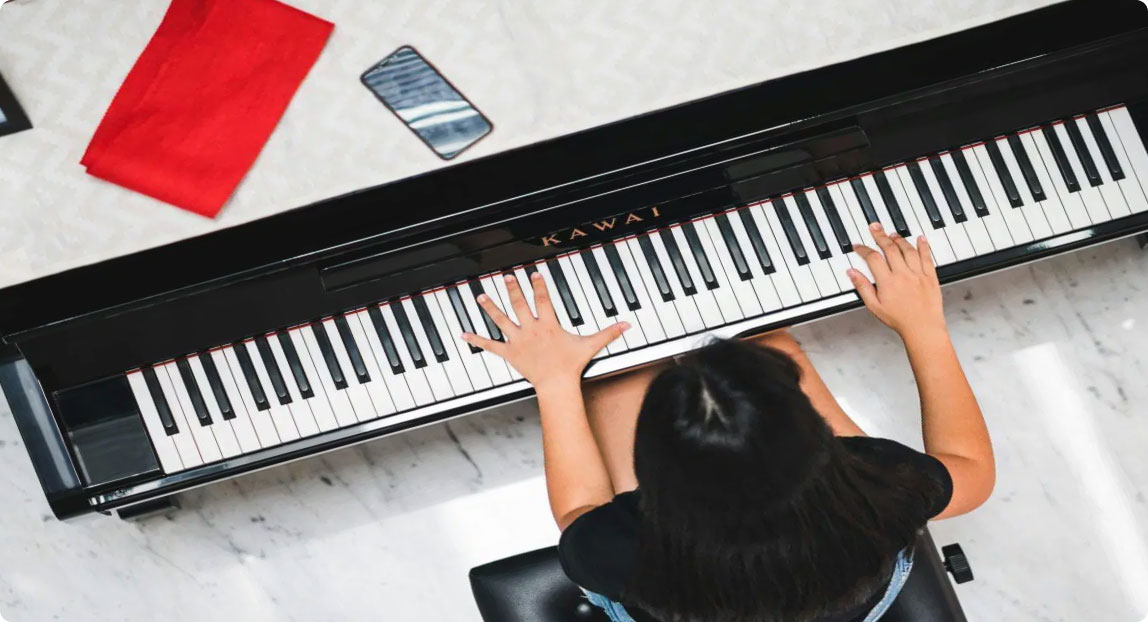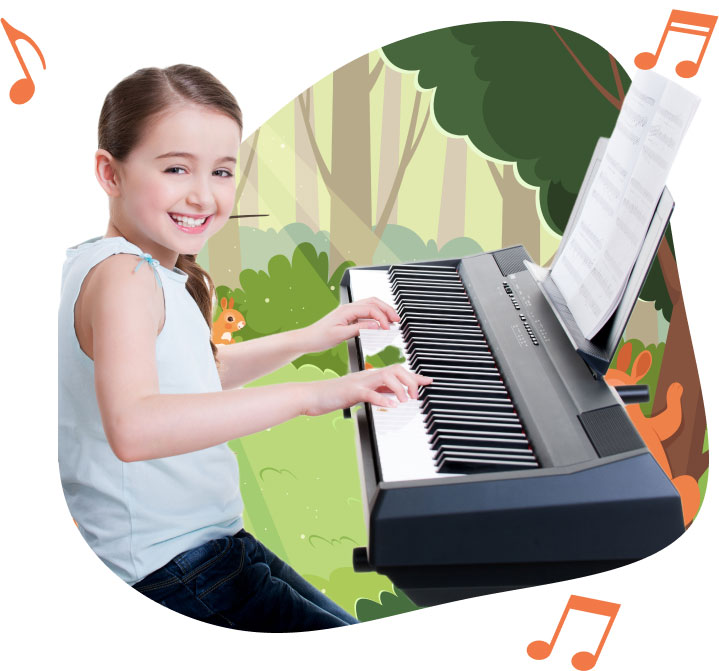
PLAY THE Piano
Master THE ART
Embark on an enriching musical expedition with the enchanting sound of the oboe. At the heart of many orchestral compositions, the oboe’s distinctive and evocative voice is truly unparalleled. Catered for enthusiasts aged 7 and above, our oboe lessons intricately weave the foundational aspects of posture, proper embouchure, breath control, and more, immersing students in the instrument’s unique qualities and ensuring a journey filled with inspiration and growth
Understanding the correct posture for oboe playing is foundational. The instrument’s specific build and weight distribution make it essential for students to grasp the importance of maintaining a relaxed yet upright stance. We emphasize ergonomic positioning, ensuring comfort and facilitating optimal sound resonance.
Achieving a proper embouchure is especially crucial for the oboe, given its double-reed design. The nuanced positioning and pressure applied to the reed directly influence the quality of the sound produced. Our experienced instructors dedicate themselves to guiding students in perfecting this skill, ensuring vibrant and unwavering tones.
The art of breath control is central to playing the oboe, an instrument known for its relatively high resistance due to its narrow bore. Our lessons integrate a series of specialized breathing exercises, helping students harness their breath effectively, producing longer phrases and more emotional depth in their renditions.
The magic of the oboe truly shines through its tone production. With the ability to oscillate between sorrowful, deep notes and jubilant high pitches, the oboe offers a dynamic sonic experience. Our seasoned educators guide learners in mastering the techniques behind creating various tones, enabling them to explore the oboe’s multifaceted sound spectrum.
At the heart of our teachings lies technique — the meticulous fingerwork, smooth note transitions, delicate articulations, and intricate nuances are among the many facets covered in our curriculum. From foundational skills to advanced performance techniques, we ensure students resonate deeply with the oboe’s musical potential.
Distinguished by its penetrating timbre and lyrical capabilities, the oboe has the power to captivate and evoke deep emotions in listeners. Through our oboe lessons, students will not only master the instrument but also communicate profound stories and feelings with every note.”
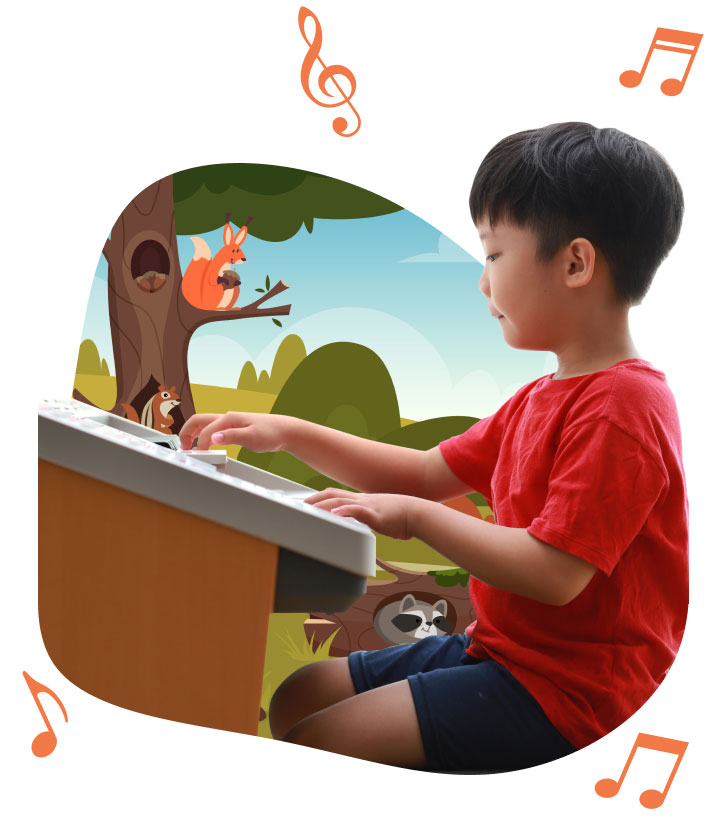
OUR Promise
-

dedicated & passionate
-

strong foundation
-

result driven
STUDENT’S Journey
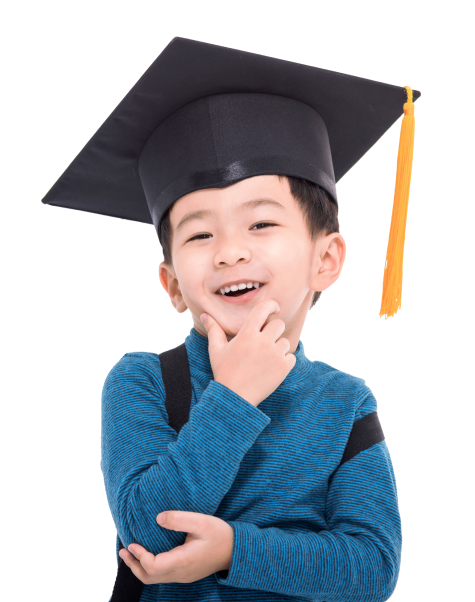
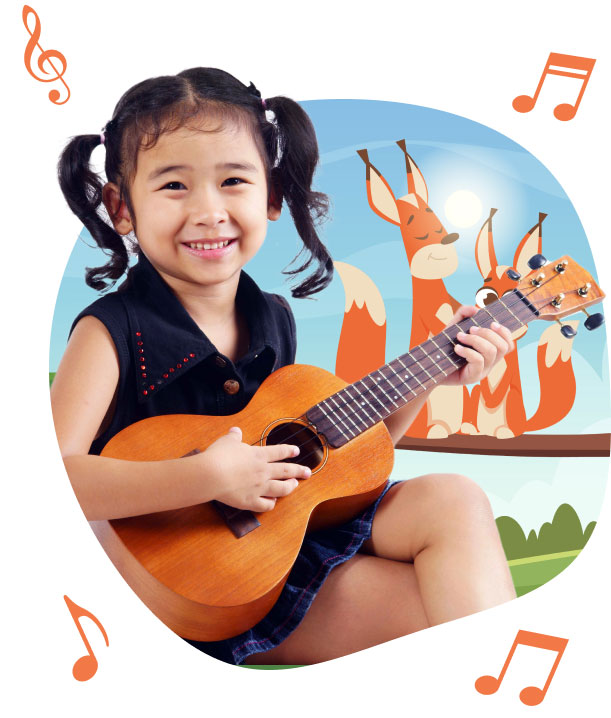
BOOK A Consultation
FREQUENTLY ASKEDQuestions
The cost of music lessons in Singapore can vary depending on the type and level of instruction. Private music lessons tend to be more expensive than group classes, as they offer more personalised instruction.
The price of music lessons also depends on the teacher’s qualifications and experience, as well as the type of music being taught.
In general, music lessons in Singapore can range from $50 per hour for basic instruction to over $100 per hour for advanced or specialised classes.
Singapore is home to many music schools, offering a wide range of music-related courses and programs.
According to statistics from the Ministry of Education, there are over 260 music schools in the country. These schools provide music education at all levels, from beginner classes for young children to advanced music theory and composition classes for adults.
Music schools in Singapore offer lessons in a variety of music genres, including classical music, jazz, pop music, and traditional music. Students can gain practical experience by participating in concerts or recitals held at the schools.
Learning piano in Singapore can be a rewarding experience and is an excellent way to pursue music. The cost of piano lessons varies depending on factors such as the teacher’s qualifications, location, and frequency of lessons.
Generally speaking, piano lessons in Singapore usually range from $50 to $200 per hour.
Those seeking more experienced teachers may pay a premium for lessons, but overall, piano lessons in Singapore are relatively affordable.
Music classes can be a great way for children to develop their musical skills and explore the world of musical instruments in a safe and educational environment.
Music classes can also improve concentration, collaboration skills, and self-confidence, as well as teaching music theory and providing exposure to different styles of music.
Additionally, music has been proven to have a positive effect on the brain and help with memory retention. Participating in music classes can provide numerous benefits for children and support their overall development.
When it comes to taking music classes, there is no single “best” age to learn. Ultimately, the best time to learn music depends on a variety of factors such as individual learning styles and abilities, availability of resources, and commitment level.
For younger children, around ages 3-6 may be an ideal age to learn music as they are developing their auditory and motor skills, which makes it easier for them to learn and remember. At this age, children tend to have more free time and energy to take on a new skill like learning an instrument.
The amount of time it takes to learn music depends on several factors, including the type of music you are learning and your individual abilities.
If you have prior experience with a musical instrument or knowledge of music theory, it can take less time to learn than someone who is starting from scratch.
Generally speaking, it can take anywhere from six months to a year to learn the basics of playing a musical instrument and reading basic music notation. After that, it may take years to learn more advanced techniques or become proficient in a specific style of music.
With dedication and practice, you can learn to play music in whatever amount of time is right for you.
Piano lessons can be a great way to develop your piano-playing skills and musical understanding. They provide an opportunity to work with experienced piano teachers who can help you progress in the best possible way.
Not only will they teach you proper piano technique, but piano lessons can also open up new musical possibilities and help bring out your creative side.



